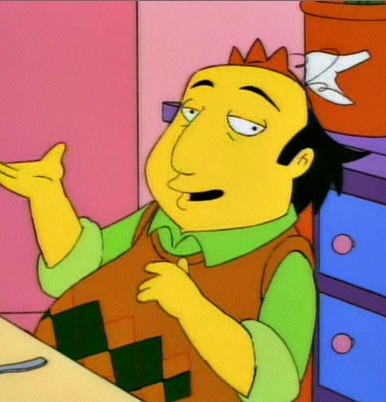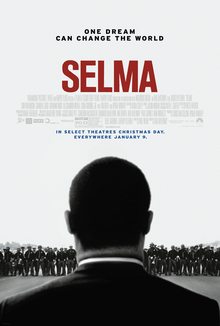Monday, December 21, 2015
Forays into Film Criticism
Hey everybody, I wrote some film reviews. Quail Bell was kind enough to publish them. In theory I'm their "New York Correspondent." Hopefully more work will be forthcoming from this position. I plan to review all kinds of things, from books to movies to food. One of these reviews is for the movie Queen of Heaven, the other is the zombie flick Cooties. I'm trying to focus on the conditions of watching the film itself, as well as what's on the silver screen.
Sunday, December 13, 2015
Monday, December 7, 2015
I'm a Regular Noah Webster
But not a Daniel Webster. No, not yet.
Check out Droppelganger, a word I got approved for Urban Dictionary.
Monday, November 30, 2015
Giving Clarendon its Poetic Due
A new poem of mine is in the Fredericksburg Literary and Art Review. Oh boosters and county fathers of Arlington, Virginia, you will be overjoyed! There's a poem about Clarendon, sweet Clarendon. Land of pub crawls or marches. Borough of bars and shenanigans.
In other news, I just passed 6 million written words. That's something to be Thankful for. I suppose.
Sunday, October 25, 2015
Working in a Minor Mode
Is a the name of a poem you can read at Abbreviate Journal. Abbreviate Journal being the name of a journal which actually isn't a journal you can hold because it is a website.
Wednesday, October 14, 2015
A Book Review: Coloring Dream Mandalas
I reviewed a coloring book. Check it out here at the ever lovely Quail Bell.
Friday, October 9, 2015
All Watched Over By Readers of Loving Grace
Science fiction time! Five on the Fifth has published a short story of mine: All Watched Over by Machines of Loving Grace. I can't recall if I got the title from the poem by Brautigan or the documentary series which was also named for the poem. It all goes back to Brautigan either way.
I also have some poems here at Birds Piled Loosely.
Sunday, October 4, 2015
Bad Liquor Pond
A poem of mine, Bad Liquor Pond, is up at a new Baltimore based publication, Vector Magazine. There's some interesting work in it, including a version of Guess Who for Millennials, by John Durovsik.
Sometimes I forget where I get my titles from. Has this ever happened to you fellow writers? Especially poets. Place names and dates are usually self-explanatory, but sometimes you come across an old title and you have no idea how you came up from it. Usually I can place it to the Bible, Shakespeare, Pound, or Ginsberg. In this case, I must've been listening to this band while writing the poem in question.
Thursday, October 1, 2015
Apologies to Crown Heights
| Just thinking about waiting for the train there makes my toes stick together |
Friday, September 18, 2015
Read a Poem I Wrote About DFW
 |
| DFW is quite the Shibboleth, no? |
Sunday, September 13, 2015
Finally Some Prose to Post
I know a lot of you don't like poetry and all the fancy stuff that goes along with it. But if reading a line break makes you break down, fear not. I have a short story about the Chinatown Bus in Baby Lawn Literature. Now excuse while I get ready to take the Greyhound to DC.
Saturday, September 12, 2015
Uptown 1 Poetry
 |
| This cat is apparently the editor in chief |
Wednesday, September 2, 2015
Saturday, August 29, 2015
Friday, August 21, 2015
It's a Poetry Discount Blowout!
Thanks to the wonderful Sophie Moss, I've got five poems up at Dirty Press. It's a British invasion, or an invasion of Britain, or maybe just more of a skirmish, or perhaps cutting in the queue. Yeah, that's probably more like it. Or being rude in a tea house. Some of you from Northern Virginia may recognize the title of "The Four Courts." Those of you from Ireland may recognize it as well and think it refers to you too. That's okay. It's all one big circle of self-referential meaning.
Thursday, August 6, 2015
More Libraries Should Have Literary Magazines
I have two poems up at Fourth and Sycamore, the literary journal of the Greenville Public Library. That's Greenville, Ohio. Read them here.
I'm currently in New York City, adjusting to life in Ditmas Park, Brooklyn.
I'm somewhere near that red star. It's a somewhat little known piece of the borough, not the hippest place but that's fine with me. We have a couple of interesting bars and that's enough. I'm a mile away from Prospect Park, the nearest landmark. Unlike my time in Manhattan, I'll probably get to see the passing of the seasons because the streets here are lined with trees. Although I live in a squat apartment building, not one of the old mansions the area is known for, I still get to enjoy the same sights and sounds of manicured nature.
I'm also still looking for work if anybody's got a lead. My areas of interest are legal, publishing, clerical, research, and administrative work.
Tuesday, July 7, 2015
Live from New York, It's Ben Nardolilli (Reprise)
Yes, the rumors are true, if you've heard them. Maybe they haven't come to you in the form of words my fellow New Yorkers. Maybe they've come in the form of slight atmospheric disturbances given off by my mustache. But I'm living in Ditmas Park, Brooklyn and I intend to make the most of it. I'm looking to hang out with you all, get involved in the local lit scene, and find gainful employment. Anybody want my resume? It's hot and ready to go out. Let's make this my perestroika summer friends.
Tuesday, April 7, 2015
Shit, I Need to Post Some Updates and Links
 |
| I've been a bit of a dandy these past few months |
Crab Fat Magazine
two poems loaded onto In Flight Literary Magazine
and a poem in Birds Piled Loosely
Also, I've decided to move back to New York City. I don't know any of the details yet, such as the when and where. But I do know the why and the what. The how...also a mystery at this point. I need a new start. Arlington has burnt me out and I'm tired of running around in the wilderness, trying to make the highways straight for a literary revolution.
Saturday, February 28, 2015
A Poem In Response to a Photo
I published a poem at ArtVilla called Light Somewhere. It was inspired by looking at this picture of Evelyn McHale, who fell to her death from the Empire State Building in 1947.
Sunday, February 1, 2015
Back to the Old New Medium
No more audio material this time. Read two poems posted at the Poet's Haven. They've been around since 1997!
Wednesday, January 28, 2015
Unknown Words With Ben Nardolilli
Hello everyone. I've got a new medium to share with you. SOUND. Matthew Anderson was kind enough to interview for his podcast Unknown Words. Sit down, pour yourself a stiff one, and listen to me here.
Friday, January 9, 2015
Heroes and Villains and Characters
The release of Selma has recently kicked off a minor controversy about the role of LBJ in the events surrounding the historic Civil Rights march. According to the movie, President Johnson is presented as something of a foil for the demonstrators, using the powers of his office to stymie, if not thwart it. In response, several historians, along with former officials in the Johnson administration have registered their objection to this portrayal. One in particular, Joseph Califano, even claims the march was largely Johnson’s idea. Normally such controversies can be reduced to the “truth being somewhere in the middle” synthesis. In this case however, we have two completely different portraits of LBJ which cannot be easily reconciled. On one hand he wants to prevent the Selma March. On the other, he is actively instigating it, the pinnacle of the “outside agitator,” often blamed by Southern officials for stirring up African-Americans against Jim Crow.
I will leave it to the professional historians who have access to the record to settle the debate. Since I have not seen the film yet, I will also pass judgment on the cinematic qualities of LBJ’s role with the movie. For me, there is one idea I feel as qualified as anyone to tackle, the question of how accurate cultural depictions of history need to be. What responsibility, if any, is there towards figures from the past? Even if it were proved conclusively that LBJ assisted with the march, many critics might defend the portrayal of the president as an artistic license, or that historical films can shuffle the deck of established facts to their liking. I think this is a dangerous defense. Plenty of bad history has occurred because of bad history in art, music, literature, and film. One cannot imagine defending the biased portrayal of the South in Gone With the Wind on such grounds.
Of course, every artist has the right to depict the past as they wish, and of course they can also be criticized for the way they choose to do so. Perhaps it is an unfair burden, but the way the past is portrayed in art and popular culture does shape the way we look at history. Often it can even affect the way we see the present. Churchill is said to have once remarked that he learned his English history through Shakespeare’s plays and not textbooks. One might say that Selma is a special case, and that showing LBJ as an antagonist is a small price to pay for having a movie with Black actors and a director released to a wide audience.
In many cases this might be true. 12 Years a Slave was criticized by some for not showing a “good master.” Putting aside Benedict Cumberbatch’s character, who represents about as good a master could realistically be within the confines of the peculiar institution, I don’t think the film or its audience lost anything by not having this figure portrayed. The alleged good master has in fact had his day in the literature of the post-Bellum South. Plus, by showing up in 12 Years a Slave, it would have only weakened the message of the film, creating a distraction. At the end of the day, the good master still owned human beings and participated in their bondage, oppression, and exchange. They were not the ones who brought an end to chattel slavery in America. Therefore, they do not deserve to be resurrected for the present.
However, Lyndon Baines Johnson is a much different case. He was not simply a president uninterested in the Civil Rights movement, or actively working to derail it. Johnson was, for all his complications and problems, a believer in equal rights between black and white Americans. His positions before becoming president aside, by the time of the film he was as firm a supporter of dismantling segregation as anyone in the White House before him. Depicting him as an antagonist of the march does him a disservice and ignores the political cost he was willing to pay for being pro-Civil Rights.
Does Slema need to be a hagiography of Johnson? No. For one very obvious reason, doing so would distract from the march and the bravery associated with it. A Selma dedicated to Johnson would depict him as a white knight coming to save the day, even if it is from those other white knights of the Ku Klux Klan. But turning him into a critic of the march and a foil for Dr. King is irresponsible for two main reasons. The first is that it supports the canard of right-wing revisionists who want to paint the Democratic Party as uniform opponents of Civil Rights in order to promote their idea that because of what Lincoln did, black voters ought to vote Republican (an analysis that ignores the whole Lily White Movement under Taft.). The second is that is robs the viewer of seeing a politician putting principle over politics, which every movement for greater equality needs at some point. LBJ supported the work of King and others and helped pushed the Voting Rights Act through Congress in spite of the possibility of losing the Solid South (a possibility which later became true after the Reagan Revolution).
As I previously stated, Selma does not need to show LBJ as the secret hero of the march. I would further argue it does not need to show or mention LBJ at all. There are enough villains to depict among the local police, CCC, and Klan. I doubt a viewer watching the scenes of carnage on the Edmund Pettus Bridge is wondering where, oh where President Johnson is and what he is doing. Omitting an historical character can be a legitimate move and many historical films and books have used it to reasonable effect, since not every single person involved in an event can be portrayed. Cutting is always required. If accuracy has to be sacrificed to include someone, then it may be better to leave them out rather than engage in contortions of the historical record.
Historical fiction needs to take pains to make sure it does not become a fictional history, especially if doing so serves to provide ammunition for those who seek to do harm in the present. If the facts must be butchered for the sake of producing a work of art, then so be it, yet most films about historical events do not strive for such lofty goals. More often than not, they wish to be educational, at the very least it guarantees a film a permanent shelf life for high school classes when the teacher needs time to catch up on grading. It is important then to try and clarify the kind of responsibility those movies situated between art and documentary have towards figures in the past.
The first principle is this: you do not have to include everybody as a character. Both the very powerful and very ordinary may need to be culled away. For those who are included, not all of them need to be treated as either heroes or villains. Some can simply be characters who help the plot along, like most of us who find themselves in the course of world events. Of those included in the work, if one was a hero in real life, then try to show it in some way. If they cannot be a hero, let them be a character. Do not make them into a villain. In fact, do not make anyone who was not a villain, a villain. At the worst, let them be the comic relief. If someone was a villain, try not to show them as anything else. Certainly do not make them a hero and if their villainy was an especially banal or standard form of evil, then perhaps it is best to leave them out altogether. Even evil deserves an interesting representation.
Sunday, January 4, 2015
Three Poems in Section 8
Happy new year to one and all. Hopefully 2015 will be the time it all comes together for me. 2014 was just another 365 days in the waiting room. I did write three novels, though who's ever going to read them? Anyway, I got a subscription to Duotrope.com and I'm back in the business of sending out submissions, which is the closest poetry writing comes to actually being like a business. Let's hear it for the commodity boom in Nardo futures! Look at my poems published here in Section 8 Mag.









